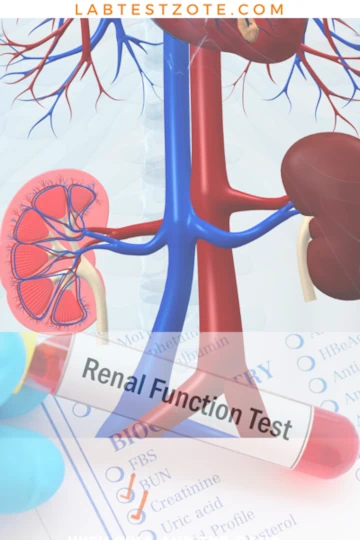What is the UECs Test for Kidney Disease?
The UECs Test stands for Urea, Creatinine and Electrolytes (UECs) is a commonly ordered blood test that provides valuable information about kidney function and related conditions. This comprehensive guide will cover the definition, preparation, components, reference values, interpretation, turnaround time, and quality issues associated with the UECs test.
Definition of UECs
UECs is a blood test that measures the levels of urea, creatinine, sodium, potassium, chloride, and carbon dioxide in the blood. It is primarily used to assess kidney function and detect any abnormalities.
Components of UECs Test

- Urea: A waste product formed by the breakdown of protein in the liver. It is filtered out of the blood by the kidneys and excreted in urine.
- Creatinine: A waste product of muscle metabolism. It is also filtered out of the blood by the kidneys and excreted in urine.
- Sodium: An electrolyte that helps maintain fluid balance and blood pressure.
- Potassium: An electrolyte that is essential for proper muscle and nerve function.
- Chloride: An electrolyte that works with sodium to maintain fluid balance and blood pressure.
- Calcium: Important in cell signalling, mainly sequestrated in bone
- Magnesium: Essential in metabolic processes
- Carbon dioxide (CO2): A measure of the amount of CO2 dissolved in the blood, which reflects the body’s acid-base balance.
Typical Reference Values
The reference values for each component of the UECs test may vary slightly between laboratories. However, the typical reference ranges are:
| # | Parameter | Reference Value |
|---|---|---|
| 1 | Urea: | 15-45 mg/dL (2.5-7.5 mmol/L) |
| 2 | Creatinine: | 0.6-1.2 mg/dL (53-106 μmol/L) for men, 0.5-1.1 mg/dL (44-97 μmol/L) for women |
| 3 | Sodium: | 135-145 mEq/L (135-145 mmol/L) |
| 4 | Potassium: | 3.5-5.1 mEq/L (3.5-5.1 mmol/L) |
| 5 | Chloride | 98-107 mEq/L (98-107 mmol/L) |
| 6 | Calcium | 2.2 to 2.7 mmol/L |
| 7 | Magnesium | 0.85 to 1.10 mmol/L |
| 8 | Carbon dioxide | 23-29 mEq/L (23-29 mmol/L) |
Preparation and Sample Collection
Patients are usually not required to fast before the UECs test. However, it is essential to inform the healthcare provider about any medications being taken, as some drugs can affect the test results. A small blood sample is drawn from a vein, typically in the arm, by a trained phlebotomist.
Interpretation of UECs Results
Abnormal levels of urea, creatinine, or electrolytes may indicate the presence of kidney disease or other related conditions. High levels of urea and creatinine can suggest decreased kidney function, while imbalances in electrolytes may indicate dehydration, kidney stones, or other medical conditions.
Calculated values in Kidney function tests
Some components of kidney function tests cannot be measured directly and are derived from calculations. The most common are:
- Estimated Glomerular Filtration Rate [eGFR]
- Urinary Albumin Creatinine Ratio [UACR]
- Corrected calcium [CCa2+]
💡Note: We don’t charge extra for calculated parameters!
Estimated Glomerular Filtration Rate (eGFR)
eGFR is a calculated parameter that quantifies the extent of kidney damage. It takes into account various parameters such as
- Race/ethnicity
- Sex/Gender
- Weight
- Height
Based on these parameters, the calculated eGFR classifies a person’s renal insufficiency into the categories shown below
| Stage of Chronic Kidney Disease (CKD) | Description | eGFR Range (mL/min/1.73m²) |
|---|---|---|
| Stage 1 CKD | Normal eGFR with mild kidney damage | 90 or greater |
| Stage 2 CKD | Mild decrease in eGFR with mild kidney damage | 60 to 89 |
| Stage 3a CKD | Moderate decrease in eGFR | 45 to 59 |
| Stage 3b CKD | Moderate decrease in eGFR | 30 to 44 |
| Stage 4 CKD | Severe decrease in eGFR | 15 to 29 |
| Stage 5 CKD | Kidney failure | Less than 15 |
Turnaround Time and Quality Issues
The turnaround time for UECs test results can vary depending on the laboratory and the workload. Most laboratories aim to provide results within 24-48 hours. However, it is essential to note that the accuracy of the test results depends on proper sample collection, handling, and storage. Hemolysis (rupture of red blood cells) or contamination of the sample can affect the test results.
Utility of UECs in Diagnosing and Monitoring Kidney and Related Conditions
The UECs test is a valuable tool in diagnosing and monitoring various kidney and related conditions, such as:
- Chronic kidney disease (CKD): The UECs test can help detect and monitor the progression of CKD by measuring the levels of urea, creatinine, and electrolytes.
- Acute kidney injury (AKI): Sudden changes in urea and creatinine levels can indicate the presence of AKI, which requires prompt medical attention.
- Dehydration: Imbalances in electrolytes, particularly sodium and potassium, can suggest dehydration or fluid and electrolyte imbalances.
- Kidney stones: High levels of urea and creatinine may be associated with the formation of kidney stones.
- Diabetes: Uncontrolled diabetes can lead to kidney damage, which can be detected through the UECs test.
- Hypertension: High blood pressure can cause kidney damage, and the UECs test can help monitor the effects of hypertension on kidney function.
Bonus: Other tests outside of UECs used in evaluating kidney diseases
In conclusion, the UECs test is a crucial tool in diagnosing and monitoring kidney and related conditions. By understanding the components of the test, reference values, and interpretation of results, healthcare providers can make informed decisions about patient care and treatment.
“Whether you want to check up on your kidney health or regular monitoring for an ongoing kidney condition, you are in the right place!
Reach us through our contact page or simply tap the WhatsApp chat for a one-to-one consultation with our specialist nephrologist”
Related Tests to UECs Tests
Disclaimer
The information provided on this medical blog is for general informational purposes only and should not be considered as a substitute for professional medical advice. Always consult with a qualified healthcare provider before making any healthcare decisions or taking any actions based on the information provided on this blog. The authors and publishers of this blog are not liable for any errors or omissions in the content or for any actions taken based on the information provided.
